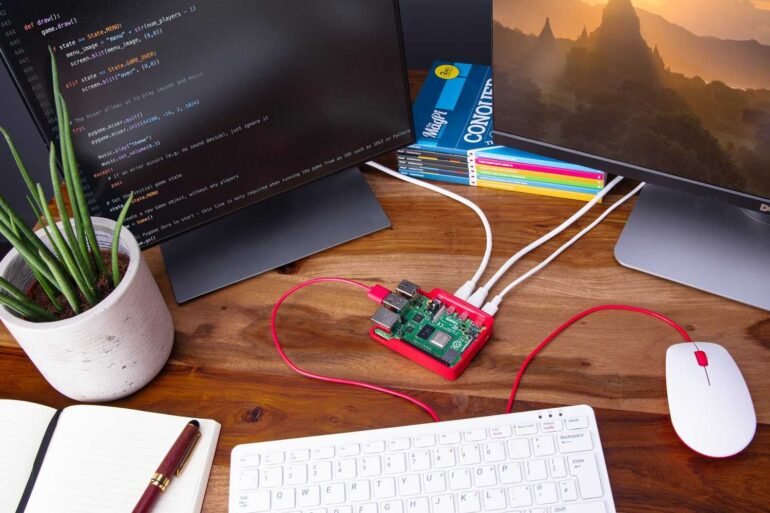Raspberry Pi has taken the tech world by storm with its compact size and powerful capabilities, making it the perfect tool for beginners looking into coding and electronics. Explore the versatility of Raspberry Pi and how it can be utilised in various projects, from building your home automation system to creating a retro gaming console. Whether you’re a novice programmer or a seasoned tech enthusiast, this versatile little device has something to offer everyone.
Finding Your Ideal Raspberry Pi Model
When choosing the right Raspberry Pi model for your needs, it’s important to consider what you will be using it for. The Raspberry Pi Zero is a great starting point for beginners looking to dabble in programming and electronics due to its affordability and simplicity. It may have less power than other models, but it is perfect for learning the basics and experimenting with projects. You can find this model and other essentials at a Pi shop, which offers a range of Raspberry Pi products and accessories.
On the other hand, if you’re looking to build a more complex system or run multiple applications at once, the Raspberry Pi 4 would be a better choice. With more RAM and processing power, this model can handle more demanding tasks and is suitable for those looking to create advanced projects such as media servers or desktop PCs. Visiting a well-stocked Pi shop can provide you with the necessary components and expert advice to get started. Understanding your specific needs and the capabilities of each model will help you make the right choice when selecting a Raspberry Pi for your projects.
Essentials to Get Started with Raspberry Pi
To start with Raspberry Pi, you will need a few essential accessories and software. First and foremost, you will need the Raspberry Pi board, which comes in various models, such as the Raspberry Pi 4 or Raspberry Pi Zero. Additionally, you will need a microSD card to install the operating system, a power supply with a micro USB connector, and a suitable HDMI cable to connect your Raspberry Pi to a monitor or TV. A keyboard and mouse are also necessary for navigating the interface.
In terms of software, you will need to download and install an operating system for your Raspberry Pi. Raspbian is the official operating system recommended for beginners, as it comes pre-installed with a variety of software and tools to get you started on your coding journey. Other popular operating systems include Ubuntu Mate and RetroPie, perfect for gaming enthusiasts. Additionally, you may want to download coding software such as Scratch or Python to start experimenting with programming on your Raspberry Pi.
With these essential accessories and software in hand, you will be well on your way to exploring the versatility of Raspberry Pi and embarking on exciting projects. Whether you’re interested in creating a smart home system, building a robot, or simply learning the basics of programming, the possibilities with Raspberry Pi are endless. So dive in and start discovering the endless potential of this powerful little device.
Setting Up Your First Raspberry Pi Project
Setting up your first Raspberry Pi project is an exciting venture that can open up a world of possibilities for learning and creativity. To begin, you must gather all the necessary components, including a Raspberry Pi board, a MicroSD card, a power supply, and any additional peripherals you may want to use. Once you have all the necessary materials, you can assemble your Raspberry Pi device by securely attaching the components to the board and inserting the MicroSD card with the operating system installed.
Next, it is time to power up your Raspberry Pi and start programming it to perform the desired tasks. You can use a variety of programming languages and software tools to interact with your Pi, such as Python, Scratch, or Node-RED. Following step-by-step instructions and tutorials online, you can customise your Raspberry Pi to suit your specific project needs, whether it involves creating a home security system, a weather station, or a media centre. With a little patience and creativity, Raspberry Pi’s possibilities are endless. So, get ready to embark on an exciting journey of exploring the versatility of Raspberry Pi and unleash your inner tech enthusiast.
Resources and Communities for Raspberry Pi Learners
For those looking to dive into the world of Raspberry Pi, countless resources and communities are available to provide help, project ideas, and support. One of the best places to start is the official Raspberry Pi website, with tutorials, project guides, and forums where users can ask questions and share their creations. The Raspberry Pi Foundation also hosts events and workshops worldwide, allowing learners to connect with like-minded individuals and learn from experienced experts in the field.
In addition to the official resources, many online communities are dedicated to Raspberry Pi enthusiasts. Websites like Reddit’s r/raspberry_pi and the Raspberry Pi forums are great places to find project ideas, troubleshoot issues, and connect with a global network of users who are passionate about all things Raspberry Pi. These communities are invaluable for learners looking to expand their skills and get inspiration for their next project. Whether you’re a beginner or an experienced user, the Raspberry Pi community is there to support you every step of the way.



